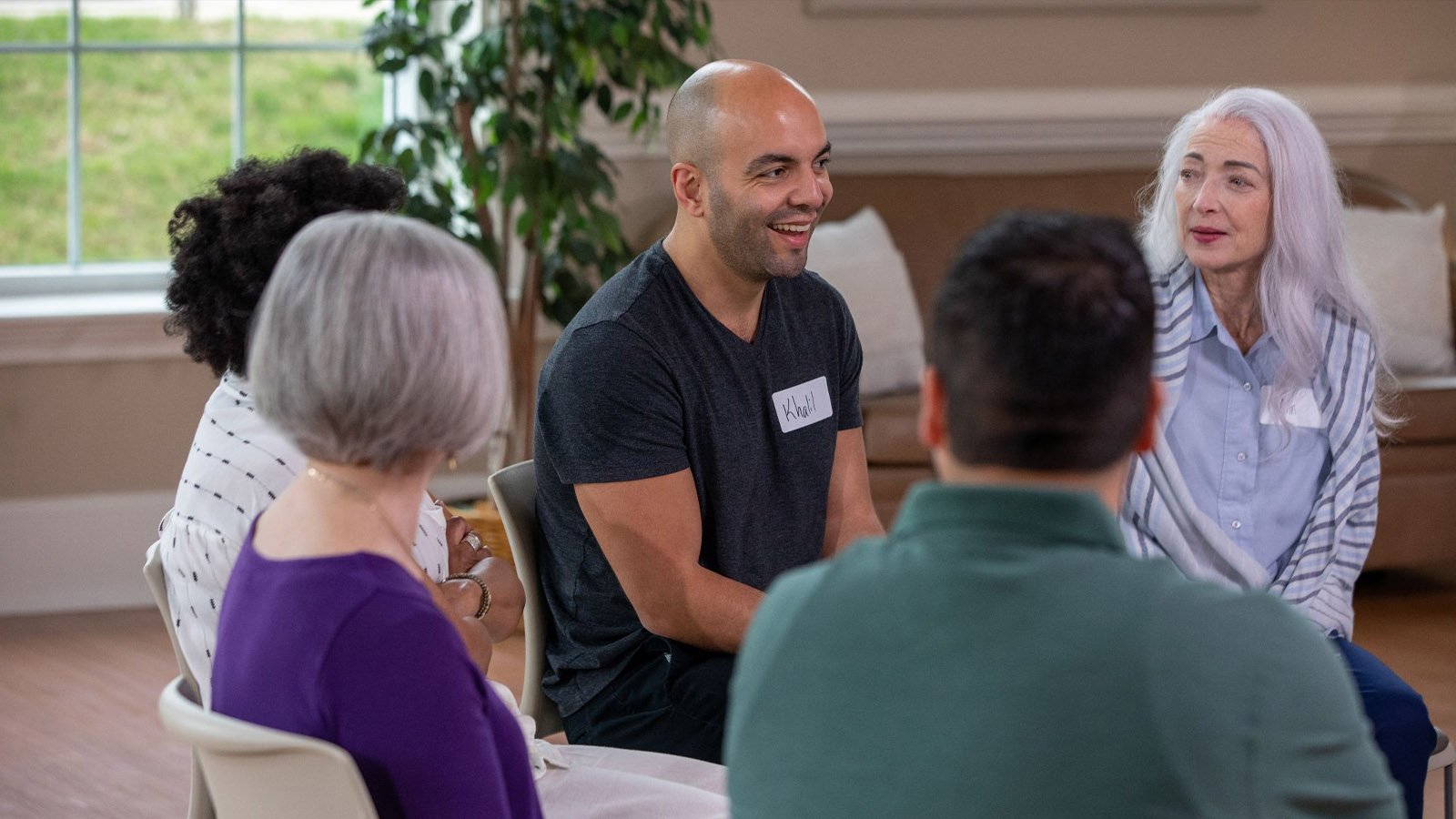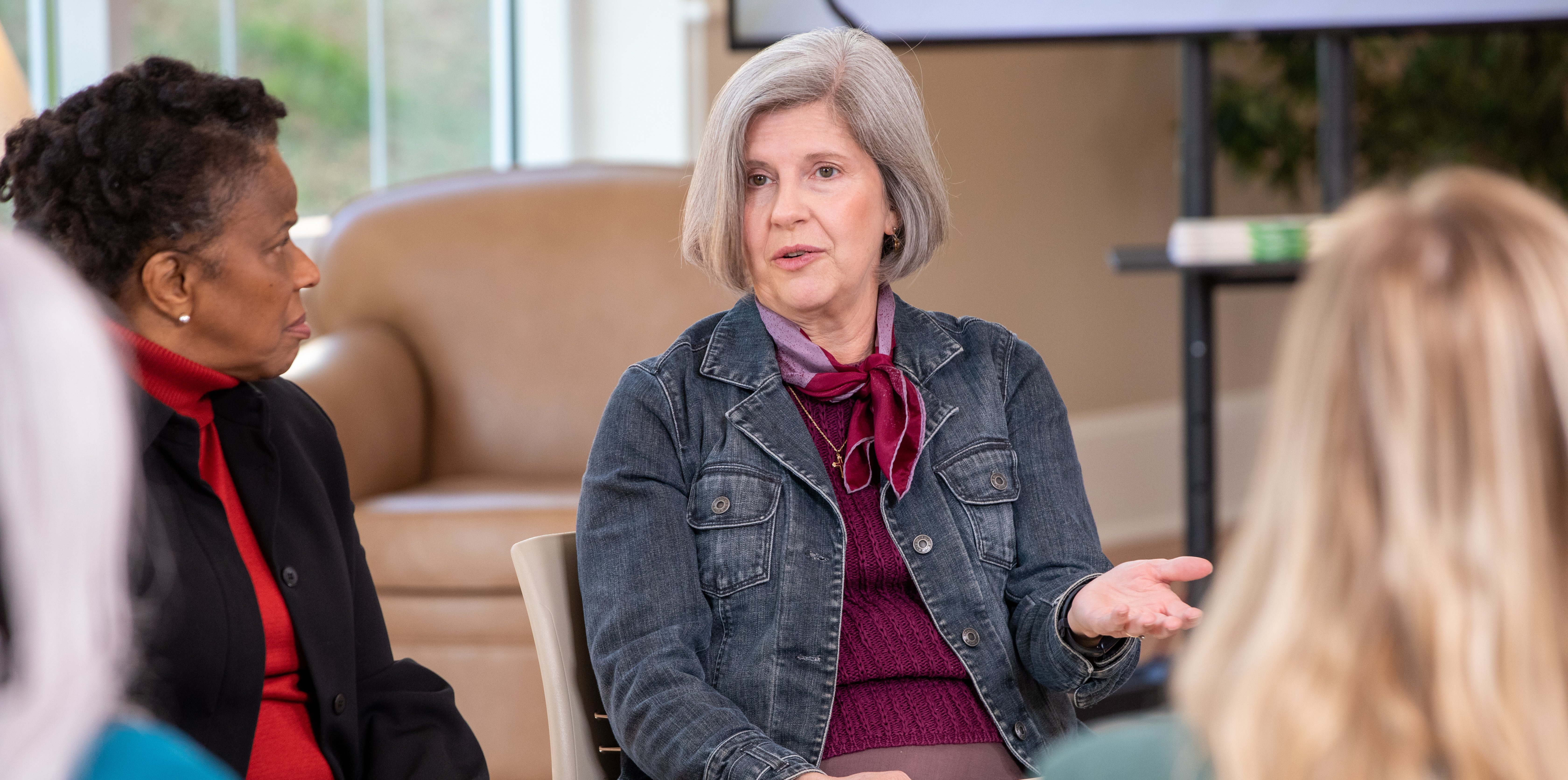7 Tips for Leading GriefShare Well

No one likes to feel unprepared. Whether you are a new or seasoned GriefShare facilitator, these tips will prepare you to lead an effective group with confidence and compassion.
1. Watch the videos ahead of time
Previewing the videos will help you get acquainted with the content for that week’s session. Take notes! If there are points that stand out to you, write them down to help during discussion time. Even if you have watched the videos before, fresh eyes and ears help keep you up to date, and you might learn something new. With each new group, you’ll hear insights on the videos that may be helpful for certain individuals and their unique situations.
2. Review your leader & participant guide
Work through the participant guide alongside your group members and reread your leader’s guide. Each week, look at the next session agenda and review the discussion questions. As you get to know your participants better and understand their struggles, highlight the questions and exercises that would be the most helpful in both books. This will help you lead more meaningful discussions and guide them through their personal grief journeys.
3. Pray & reflect
Spiritual preparation is just as important as the logistical preparations. As a GriefShare leader, you are God’s hands and feet to bring comfort to those hurting from the loss of a loved one. Take time to pray for Him to guide you, and pray for your participants and ministry volunteers by name throughout the week. God will equip you with the wisdom and empathy you need to facilitate your group effectively.
4. Remember: Two is better than one
Having two leaders for your GriefShare group can be beneficial for leaders and participants. Here’s how two leaders can make your group more effective:
- Unique strengths and points of view: Everyone has different strengths and weaknesses. Two leaders can use their unique perspectives to guide the discussion and bring more insight and support to your group.
- More support available: One facilitator can guide discussion, while the other can pay attention to the dynamic of the room or be available when a participant needs more intentional support.
Co-facilitators need to communicate before the start of their group so they are on the same page about their roles and strategies. You can establish signals or strategies for when discussion gets off track. Meet after each group to talk about how the group went, share insights, and discuss any needed changes. For further discussion, read How Many Facilitators Does My Group Need?
5. Have open communication with your team
A team that works well together is important in creating a safe space for participants. Make sure everyone is on the same page, and have open communication throughout the 13 weeks.
Here are some important things for you to communicate with your team:
- When, where, and how often you’ll have team debriefing meetings to discuss how the group is going and any leader/participant needs or concerns
- What to do if a leader can’t make it
- Strategies to use when discussion gets off track or when people hesitate to share (see When Your Group Has a Talker (or Two) and How to Handle Silence, Tension, Hard Questions & More)
- Any changes or group news
- Self-care suggestions: Direct your ministry team volunteers to the LeaderCare section of the LeaderZone (login required)
Remember, you are a team! Work together and you will be able to lead an effective and meaningful group.
6. Never stop learning
Everyone can benefit from continued learning, especially GriefShare leaders. Thankfully, there are plenty of resources available in the LeaderZone (login required). Watch webinars, go over training videos, and check out the library to stay up to date on best leading practices. This will help you to continue leading confidently.
7. Find encouragement and inspiration from Scripture
Thankfully, you are not the first person leading a ministry. The Bible gives us plenty of examples of effective ministry. You can find wisdom and encouragement from Jesus’ time of ministry, as well as Paul’s ministry. Feeling overwhelmed? Read the Psalms and find encouragement from David’s raw and open heart. You are living proof that ministry has meaning and impact in the lives of those it reaches.
Keep these tips in mind, and you can confidently facilitate a successful GriefShare group. Your participants will feel seen and heard, and your leaders will feel equipped and ready each week. Thank you for your heart of ministry and bringing hope to those walking through grief!


